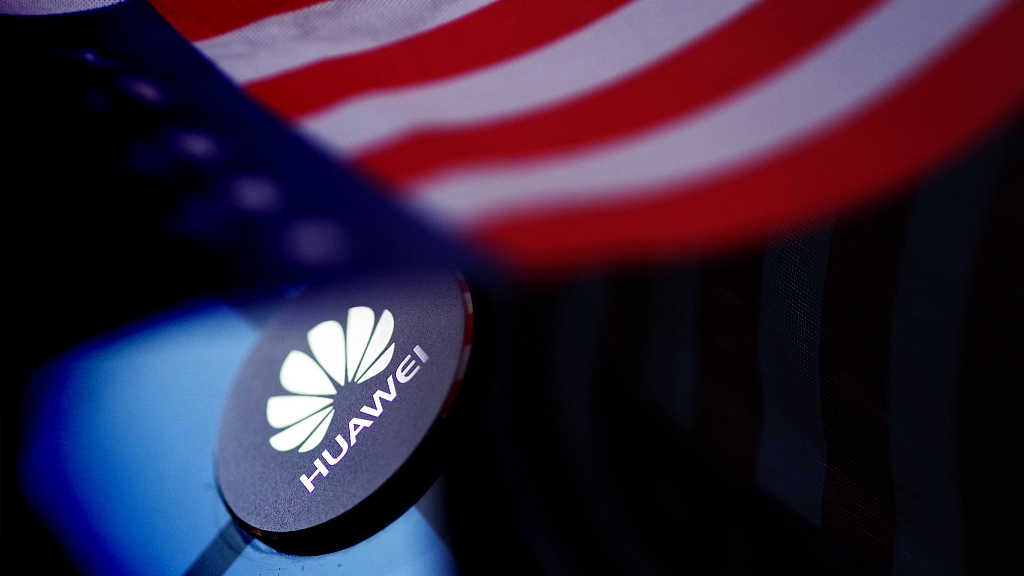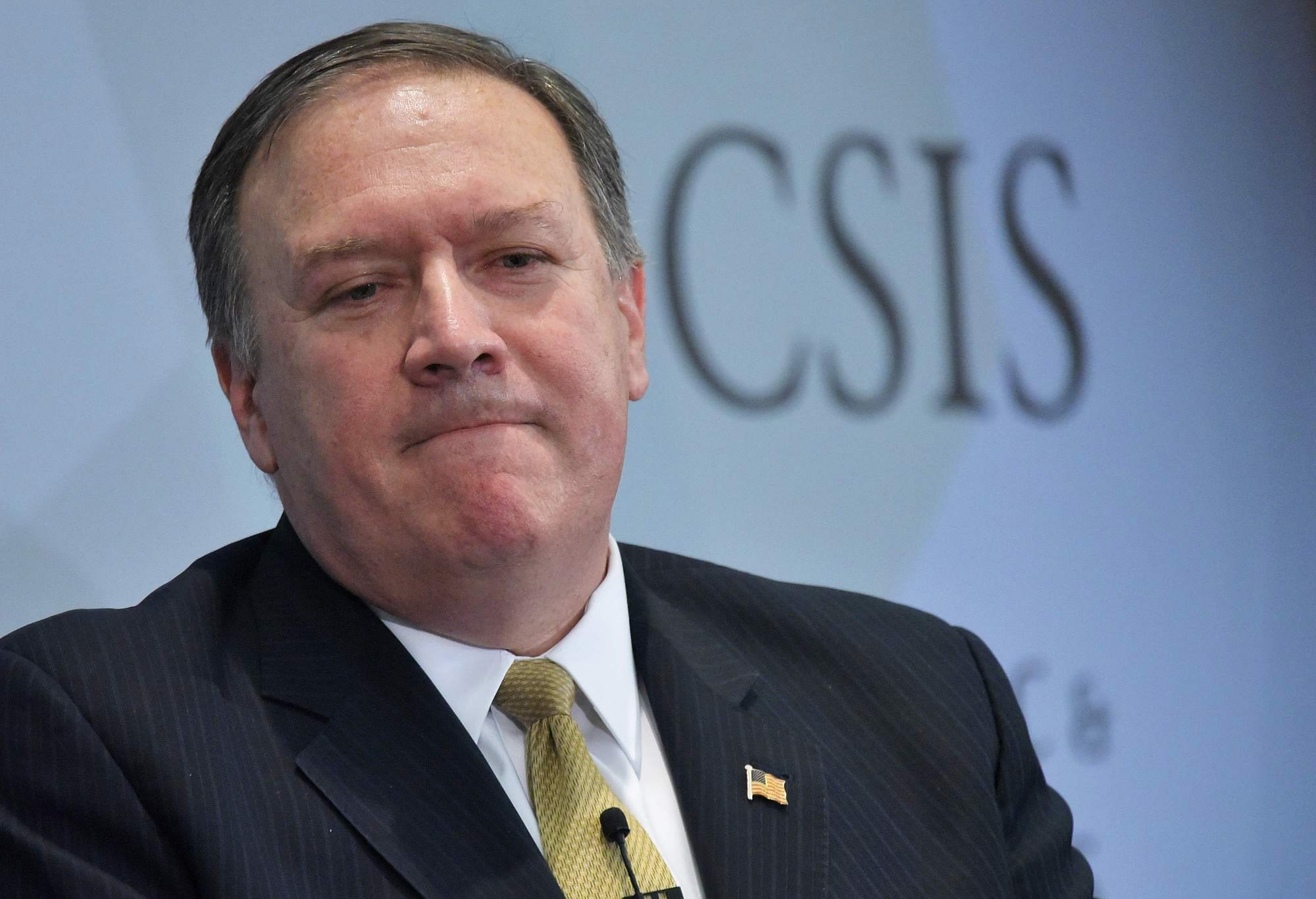
Editor's note: Xiong Tong is an opinion editor with CGTN Digital. The article reflects the author's opinions, and not necessarily the views of CGTN.
The U.S. Central Intelligence Agency (CIA) has used for decades the encrypted communications of U.S. allies and adversaries through a Swiss encryption equipment company for its own good, disclosed a detailed report titled "The intelligence coup of the century" by Greg Miller in Washington Post on February 11.
The leak showed that if the U.S. got the equipment and technology it needed to control the data, it would use the data to engage in assassination plots, ethnic cleansing campaigns and human rights abuses worldwide.
However, because countries like China and Russia suspected the equipment that may have connections with the intelligent agencies in the West, the CIA has its limits. The people at CIA knew that and began to build gadgets to spy on these countries' telecommunication devices, but they failed to do so.
As it needs firms like Huawei to decrypt their own systems, in order to let Huawei be as transparent as it could possibly be, it began to lobby in the U.S. media that Huawei has secrets with the Chinese government. As Huawei leads the development of 5G technology, this move by the CIA also indicates the U.S. hasn't yet prepared its equipment enough for the 5G competition.
Graham Webster, editor-in-chief of the DigiChina project at New America, said in a tweet, "No wonder U.S. intelligence is suspicious of Huawei. No wonder Chinese officials are determined to build their own IT stack."
Not only does the CIA want to get full control of the information from all places of the world, it also wanted to get them in all generations. This means the CIA does not want other countries' companies, such as China's Huawei, to get ahead of U.S. companies in 5G R&D.
The former CIA spy Edward Snowden proved this in his book "Permanent Record" published in 2019. He described how the U.S. intelligence community used all possible intelligence from the beginning of the internet era half a century ago to the beginning of the Internet-of-Things era recently to keep all people under surveillance anytime anywhere. "Your devices are constantly communicating for you whether you want them to or not."

Former CIA Director Mike Pompeo speaks during a discussion on national security at the Center for Strategic and International Studies (CSIS) in Washington, DC., U.S., April 13, 2017. /CFP
Former CIA Director Mike Pompeo speaks during a discussion on national security at the Center for Strategic and International Studies (CSIS) in Washington, DC., U.S., April 13, 2017. /CFP
It seems that the U.S. gets very worried when its technology falls behind China's, as U.S. President Donald Trump tweeted on November 2019, "I asked Tim Cook to see if he could get Apple involved in building 5G in the U.S.," which meant that the U.S. had not figured out the 5G technology yet, meaning it is ridiculous to say that Huawei stole American technology.
Just because the U.S. isn't prepared for building 5G networks doesn't mean that it needs to ignore and vilify other countries' 5G technology. Because by doing so, it proves the U.S. companies don't even know what fair play means in competition with other countries' firms.
Moreover, not only are the U.S. journalists and officials being ridiculous by putting baseless allegations on Chinese and Russian high-tech companies, but that also indicates how weak the U.S. intelligent services are when directly competing with others.
It is absurd that the U.S. officials are keeping saying that Huawei will do harm to U.S., as a veteran Chinese diplomat Fu Ying challenged U.S. House Speaker Nancy Pelosi's comments on Huawei at this year's Munich Security Conference, "Do you really think the democratic system is so fragile it could be threatened by this single high tech company, Huawei?"
Nevertheless, it is also ludicrous when the U.S. Democrats keep blaming Russia and other countries' intelligence agencies for interfering in the 2016 elections. Just by saying it, it exposed how weak U.S. intelligence agencies had been in protecting the elections themselves. If the Russian-made advertisements on Facebook had that much impact on U.S. elections, then the U.S. officials should think hard as to why the charm of American-made ads was so weak when compared with the Russian-made ads.
Snowden exposed in his book that although the CIA knows how to gather intelligence in the internet era, it is also trying to keep up with the rapidly changing times of technological advancement. "Our main project was to help the CIA catch up with the bleeding edge… by building it the buzziest of new technologies, a 'private cloud'."
By now, the CIA may have developed that technology to control "the cloud," as Snowden said "that your data is no longer truly yours. It's controlled by companies, which can use it for virtually any purpose." However, it may not have yet advanced the technology to control data in the 5G networks. So the U.S. wouldn't let other countries' companies get into the U.S. market before their U.S. competitors for its own sake.
In the near future, if U.S. companies like Apple are able to develop 5G network for the country, the CIA can then manage the 5G data. It would just cause a more disturbing future, and as the Washington Post report shows, the CIA would use these data to kill millions of people in many countries and blame it on their governments if needed.
(If you want to contribute and have specific expertise, please contact us at opinions@cgtn.com.)